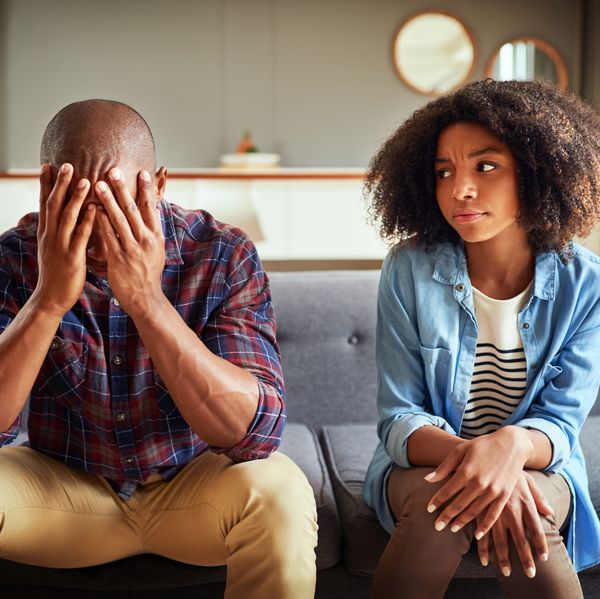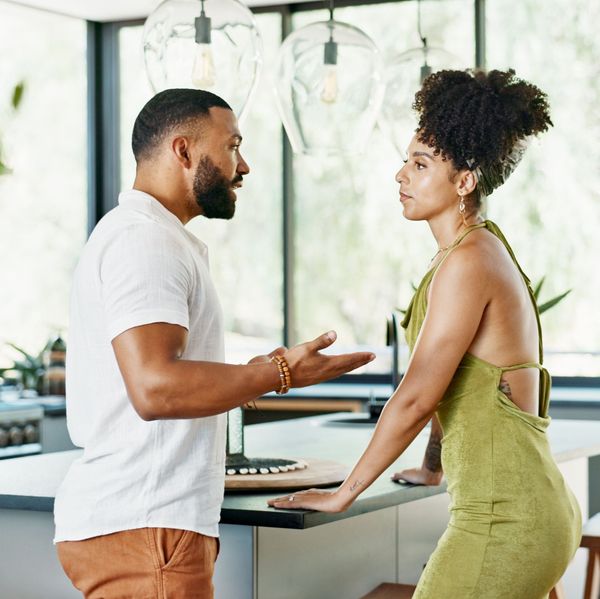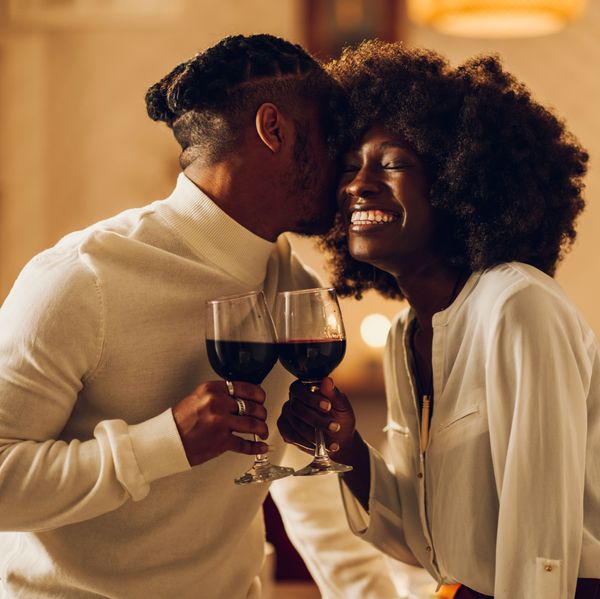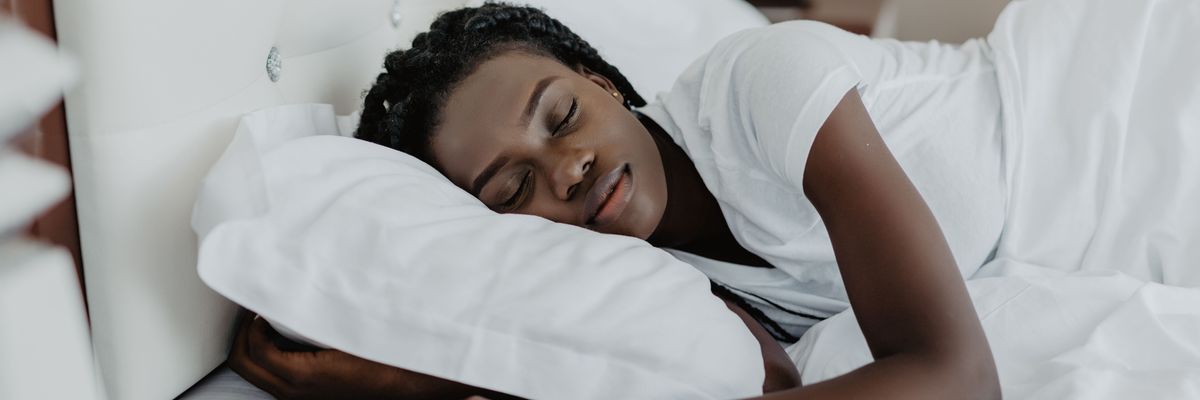Why Every Woman Should Go On A 'Get Your Heart Pieces Back' Tour

A few months ago, in the article, "The 'Pre-Commitment Interview' Every Dating Couple Should Have", I referenced a lil' tour that I took back in 2015 (wow, five years ago). At the time when I started it, I didn't know that I was on a mission to get my heart pieces back. But, as life would have it at the time, that is exactly what went down. Anyway, because I seem to get interviewed about "the tour" more and more, I decided it was only right to share with the xoTribe just what I did, why I did it, and how to played a huge role in making my heart truly whole again.
Why Our Hearts Are Do Divine and Must Be Protected at all Costs
The Classic Amplified Version of Proverbs 4:23 instructs us to, "Keep and guard your heart with all vigilance and above all that you guard, for out of it flow the springs of life." If there's something that I tell soon-to-be parents is there are two things that children definitely need; two things that get overlooked far too often in the raising and nurturing (or, as the Bible puts it, "training"—Proverbs 22:6) process. First, children need to be taught how to be financially responsible and second, children need to be taught how to properly guard their heart. That second one is super layered because, by definition, the heart is a complex thing.
It's an organ that pumps blood throughout our bodies. It's the center of our emotions. It's also the center of our personality. In the Hebrew language, it's our mind and thoughts. Some synonyms for heart include our character, our soul and even our temperament. No wonder the Word tells us that out of our heart flows the springs of life. No wonder that a broken heart devastates—and sometimes totally alters us—so much.
This is why it's super crucial that we keep and guard our heart. For the record, this does not mean that we're supposed to be unapproachable, bitter or that we put up such a high wall up that no one can ever reach us. What it does mean is we need to handle our heart with an incredible amount of TLC. We need to be careful about who we let enter into our body. We need to be cautious about how we allow others to affect our emotions or influence our personality. Influence is a big freakin' deal. That's why we also need to watch what kind of folks are able to use their words, actions and even energy to infiltrate our thoughts.
Growing up, because I wasn't taught this well at all, I didn't know how to guard my heart. Sure, the rules in my house were semi-strict but what was modeled (parents, we watch what you do far more than what you say) was also pretty toxic. So, by the time I went to college and was in my own space, guys were able to…basically do with my heart whatever they wanted to. It wasn't until I got abstinent that I realized just how much damage had been done. Once I "detoxed", in the physical sense, from the 14 partners I had been with ("Each Of My 14 Sex Partners Taught Me Something New" pretty much breaks that down), I realized there were still parts of me that "belonged" to some of those men; belonged in ways that I had totally underestimated until I went…on tour.
What the Heck Is a “Get Your Heart Pieces Tour”, Anyway?
The love of my life. The one who got away. The best sex I ever had. These were the titles that I had given to certain men from my past. Although those resolves weren't untrue, because they were a part of my reality, those fellas still had a bit of power over me; power that I didn't even realize until I actually stopped and thought about my choices, my patterns and why, in some ways, I was stagnant when it came to my personal relational progress. And so, back in 2015, I decided that I would be intentional about finding those fellas and having a little convo with them.
The love of my life. When it came to this guy, clearly the Universe was in agreement that we needed to find real closure. I say that because my running statement is, "If you find your ex on Facebook, that's you. If you run into him in the grocery store, that's God." After looking for him for a couple of weeks (after not speaking for several years) and finally declaring to a friend that I was going to give it a month and then try to let it all go, the very next day after that phone call, I ran into ole' boy. It wasn't on Facebook, so you know what that means.
My first love had always been able to reel me back in, in a way that no other man could. But this time, I wasn't interested in romanticizing our situation. I wanted to know what the heck it was that we had been doing, basically since I was three months shy of 19. We talked off and on and met up a couple of times for a few weeks. Then one day, while we were having lunch, I realized that no matter how much he professed to love me, when we were in love, loved or liked each other, his treatment was pretty much the same. Meaning, there was no change in how he loved me beyond his words.
That a-ha moment gave me my heart piece back. I will always love him, no doubt. But that lunch—coupled with a run-in that we actually had in December—solidified the fact that we had a past, no future, and that the part of me that always kinda sorta held out hope that one day we'd be like the characters in Love Jones or Dear John wasn't going to—and didn't need to—happen. No longer do I have this sinking feeling and wondering suspicion that if I were to get married but he was to reach out, there would be a possibility that he might be able to reel me back in; even if it was just with an emotional affair (which is still cheating, y'all). The mouse hole is finally closed. That chapter—which was more like a novella—is done. Next stop.
The one who got away. Whew. This. Man. Right. Here. He's fine—and then some mo' fine. Smart. Charming. Accomplished. Hilarious. SEXY (and yes, I'm screaming the last part!). After all these years, he's still that. And, up until 2015, he was my biggest regret. Nothing was really "wrong" with us; the timing just was off. Way off. It was so off that one day, while he was in college, he called to say, "You're like crack and I choose to no longer be addicted." He hung up and I never heard from him again. I must admit that, in many ways, I totally got where he was coming from because I continued to think of him, sometimes dream about him, and always refer to him as the one who got away. This means that he still had some type of hold on me. So, one day I Googled him, found one of his office numbers (you can read between the lines right there, sis) and left a message referring to myself as "crack". Later that evening he called, we stayed on the phone for eight hours, partly discussing how, umm, ravenous we both made each other feel. Whew. I seriously considered hopping on a plane. ASAP.
Why didn't I? For a few reasons, really. One, it was evident that while there was still a deep connection there, spiritually, we are in very different places now. Secondly, I'm not so sure that reuniting wouldn't have been more than months—maybe years—of off-the-chain sex, nice dates, but not much more than that…on his part. But more than anything, he's divorced, and I hold a personal conviction about that (I Corinthians 7:10-11). Because my niche, as a marriage life coach, is reconciling divorces, I personally don't want to "be in the way" of a couple, who was once in that type of covenant, possibly getting back together. And so, after a few weeks of chatting—and I'll be honest, fantasizing—I sent him an email that it was so good to reconnect, to get to a good place, and to be able to wish him well. Now, he's no longer the guy who got away from me. He's just the fine divorced man who I used to know.
The best sex I ever had. How do you get past this one? Hmph. You might be surprised. As we emotionally heal and even physically mature, our take on what "best sex" is tends to shift (see "What GROWN Women Consider Great Sex To Be"). It was important for me to have a brief (LOL) conversation with this dude because, up until I did, I kept replaying how the physical part of the sex was without factoring in how absolutely wack everything else had been. I was never really "into him"; I liked the sex.
And chile, if you live on this earth long enough, you realize that great sex isn't super hard to come by; that oftentimes, sex is what you make it. Still, it was necessary to talk to him because now I don't feel like he has the ability to "hit some spots" like no other man can. He simply was one of the lucky ones who was privileged enough to do it. My future husband will be even more blessed. Yep. Got that heart piece back too.
Why It’s So Important to Restore Your Heart Before Moving Forward.
Although I can't recall exactly where it came from, I once heard someone say, "It's hard to walk away from a train wreck once the train has run you over." Indeed. Some of us don't realize that "the wreck" is a relationship (or several relationships) and "the train" is a guy. We don't get that we're emotionally stagnant, internally bitter or not thriving in a new relationship like we could and should be, and that it's all because there are men out here who still have parts of our heart. They still trigger our emotions. They are still able to love bomb or gaslight us. They prevent us from fully trusting. They keep us living in the past. They have us holding out. Or, perhaps worst of all, they are able to keep coming back—if not physically, mentally.
Man…when I tell you that words can't express, just how freeing it feels to know that, while there are some faint scars from some of my past experiences, all of the wounds are totally gone? It is so refreshing! Going on that tour has shown me that it really is possible to be fully restored, to not hate or even resent an ex and, no matter how deep or profound an experience—or set of experiences—may have been, it no longer has to affect or infect me. A tour can be "one and done". No matter how much of myself that I gave to a man, I can get all of me back.
All of this said, I will say this—the title of today's soul food for thought is a little bit of clickbait. Does every woman who has a past need to go on this kind of tour? Eh, probably not. But if you're like a lot of women I know who reflect on their past and have given men certain titles or accolades like the examples that I just provided, 8.5 times out of 10, what that means is those guys still have a stronger hold on them than they ever should. Whether those ladies realize—or choose to accept—it or not, those fellas still have a piece of their heart; a piece that they need to get back. That means that, on some level, they are stuck. And when you are stagnant, it is impossible to move forward. And you need to move forward.
If that means saying a prayer, taking a deep breath and hitting up an ex or two to have a talk, so be it. Better to get your heart piece via the clarity that you need than to allow a man to still have a part of you because you haven't found resolve with—or from—him. Take the tour. Get the T-shirt. I did. And I'm oh so very whole because of it.
Want more stories like this? Sign up for our newsletter here and check out the related reads below:
6 Reasons Why You STILL Can't Over Your Ex
How To Get Closure If Your Ex Won't Give It To You
Feature image by Giphy
This Is How To Keep 'Holiday Season Stress' From Infecting Your Relationship
Hmph. Maybe it’s just me, but it seems like there is something really weird happening in the fall season air (because winter doesn’t officially begin until December 21) that cuddle season is in full swing while break-up season is as well. In fact, did you know that break-ups are so popular during the holiday season that December 11 is deemed Break-Up Day?
The reasons why relationships shift around this time vary; however, I did both roll my eyes and chuckle when I read that a very popular one is because it’s an easy way to get out of getting one’s significant other a Christmas present. SMDH.
Anyway, I personally think that the less shallow folks out here may contemplate calling things “quits” or they at least distance themselves a bit from their partner (and what I’m referring to is serious relationships) due to all of the stress and strain that oftentimes comes with the holidays whether it be financial, familial, due to their tight schedules or something else.
Listen, I would hate for you and your man to miss the fun and happiness of experiencing this time of year, all because you are so overwhelmed or irritated that you can’t really enjoy it. That’s why I have a few practical tips for how to avoid allowing the typical holiday season stress from INFECTING your relationship.
Manage Your Expectations
 Giphy
GiphyUnmanaged expectations. If there is a main reason why the holiday season tends to be so stress-filled for so many people, I’d bet good money that this is the cause. And when you’re in a long-term relationship, expectations can manifest themselves in all sorts of cryptic and/or unexpected ways. You might have relatives who assume that you are going to be with them for Thanksgiving or Christmas when you have other plans in mind. You might be thinking that you are going to spend one amount for presents while your man is thinking something totally different. When it comes to scheduling, your signals may be crossed.
And you know what? To all of these scenarios, this is where clear and consistent communication come in. Don’t assume anything. Don’t dictate anything either. From now until New Year’s, mutually decide to check in once a week, just to make sure that you are both on the same page as it relates to the holidays and what you both are thinking will come along with it. The less blindsided you both feel, the less stressed out you will be. Trust me on this.
Set (and Keep) a Budget
 Giphy
GiphyOkay, so I read that last year, 36 percent of Americans incurred some type of holiday-related debt. Hmph. Last year, there was still some sense of normalcy in this country, chile, so I can only imagine what finances are gonna look like over the next several weeks. That said, since I don’t know a lot of people who don’t find being broke stressful, make sure that you and your bae set a budget and then stick to it this year — no ifs, ands or buts.
Because really, y’all — it doesn’t make sense to deplete savings and/or max out credit cards for a few days of giggles only to be damn near losing your mind because you don’t know how to make ends meet come Dr. Martin Luther King, Jr. Day.
And by the way, this tip doesn’t just speak to things like food and gifts; I also mean travel. If it doesn’t make a ton of sense (or cents) to be all over the place this year — DON’T BE.
Keep Matthew 5:37 at the Forefront
 Giphy
GiphyIf off the top of your head, you don’t know what Matthew 5:37 says, no worries, here ya go: “But let your ‘Yes’ be ‘Yes,’ and your ‘No,’ ‘No.’ For whatever is more than these is from the evil one.” That verse right there? Oh, it’s a boundaries lifesaver! I say that because do you see “maybe” or “I’ll think about it” in there? Nope. LOL. It says that you should tell people “yes” or “no” and leave it at that — and that complements Anne Lamott’s quote, “’No’ is a complete sentence” impeccably well. Yeah, you’ve got to remember that anything beyond a yes or no to a request is privileged information; you don’t owe anyone details or an explanation.
Besides, if you are really honest with yourself, when someone asks you something and you give a “Umm, let me think about it” kind of reply, more times than not, you already know what your answer is going to be — so why not let you both off of the hook? Give your response. Commit to that. And let everyone (including yourself) get on with their lives and schedules.
I promise you that when it comes to those holiday parties, you are pissing more folks off by not RSVP’ing or doing so and not showing up than just saying, “Thank you but not this year” off the rip.
Remember That Your Personal Space Is Privilege Not a Right
 Giphy
GiphyA friend of mine recently bought a new house and invited me over to come see it. He’s a single man with no children, so as I was taking in all of the space that he had, especially as I walked through his finished basement, I joked about relatives coming to live with him. “Hell no” and “absolutely not” were pretty much his immediate responses as he went on to say that some folks even had the nerve to be offended when he told them that he had no intentions on taking DNA in.
Ain’t it wild how people think that your stuff is their right? And yes, that brings me to my next point. Your home is your sanctuary space. If you want to host folks this year — cool. If not, ALSO COOL. Please don’t let folks (family included) guilt you into how they want you to act or even into what they would do if the shoe was on the other foot. You are not them — and as one of my favorite quotes states, “If two people were exactly alike, one of them would be unnecessary.” (A man by the name Larry Dixon said that.)
Hell, my friends? They know that I am good for sending them random things that they need or even want all throughout the year. Coming over to hang out at my pace, though. Uh-uh. Chalk it up to being a card-carrying member of the ambivert club yet I like keeping my living space personal — and I sleep like a baby, each and every night, for feeling that way.
Always remember that your space, your time, your resources, your energy and shoot, yourself period (including your relationship), are all things that are your own. You get to choose how, when and why you want to share them. The holiday season is certainly no exception.
Cultivate Some “You Two Only” Traditions
 Giphy
GiphyIt’s not uncommon for some couples to hit me up after the holiday season to “detox.” Sometimes it’s due to the financial drama (and sometimes trauma) that they experienced. Sometimes it’s because they allowed their relatives (especially in-laws) to get more into their personal business than they should’ve. More than anything, though, it tends to be because they didn’t get enough quality time together and so ended up feeling “disconnected.”
Please don’t let that happen. Listen, I’m not even a holidays kind of woman and yet, I will absolutely sit myself down with some hot chocolate and chocolate chip cookies to enjoy a Hallmark holiday film or two. Aside from the fact that most of them are lighthearted and sweet, I also like that they usually focus on couples loving on each other amidst all of the holiday beauty and ambiance — which is something that all couples should set aside some time to do.
Maybe it’s a vacation. Maybe it’s a staycation. Or maybe it’s my personal favorite, A SEXCATION. Whether it’s for a few days, the weekend or even overnight — don’t you let the holidays go by without setting aside time for you and your man to celebrate one another. Don’t you dare (check out “Are You Ready To Have Some Very Merry 'Christmas Sex'?”).
GET. SOME. REST.
 Giphy
GiphyI once read that 8 out of 10 people get stressed out over the holidays and 3 out of 10 lose sleep during to it — and when you’re stress-filled and sleep-deprived, that can absolutely lead to hypersensitivity, making mountains out of molehills and even not being in the mood for sex.
Your relationship can’t afford to go through any of this, so definitely make sure to prioritize rest. I don’t care how unrealistic it might seem during this time, sleep should never be seen as a luxury; it will always and forever be a great necessity.
That said, try to get no less than six hours of shut-eye in (check out “6 Fascinating Ways Sex And Sleep Definitely Go Hand In Hand”) and even ask your bae to take a nap with you sometimes (check out “Wanna Have Some Next-Level Sex? Take A Nap, Sis.”). Not only will sleep help to restore your mind, body and spirit but, when it’s with your partner, it’s an act of intimacy that can make you both feel super connected, even in the midst of what might feel like chaos.
___
Holiday season stress is real. Still, never give it the permission or power to throw your relationship off. Put you and your man first and let the holidays be what they are gonna be, chile.
Let’s make things inbox official! Sign up for the xoNecole newsletter for love, wellness, career, and exclusive content delivered straight to your inbox.
Featured image by Shutterstock
While doing a podcast interview a couple of weeks ago, when I said my age, the interviewer complimented me by saying that what I said is not what they would’ve guessed. When they asked what the secret was, the first thing that came out of my mouth was, “Oh, I’m gonna take me a nap.”
I adore sleep. I’ve said before that it’s like what Six Flags is to some people. And really, it’s just a plus that there are so many health benefits from getting plenty of rest. Beauty-wise, science does reveal that getting no less than seven hours a night can slow down signs of aging. Know what else? There are some direct things that sleep — and the lack thereof — can do to your immunity as well.
And so, since this is the time of year when catching a cold (and/or the flu) is common, let’s talk about the impact that sleep (and again, a lack thereof) has on your immune system. That way, you can remain as healthy as possible during the fall and winter seasons.
1. Less Sleep Means More Colds
 Giphy
GiphyLike I stated in the intro, I’m pretty sure you’ve heard somewhere that the fall and winter are the seasons when people are most susceptible to catching a cold or coming down with the flu. And that’s exactly why I thought I would start this all off by sharing the fact that some studies reveal that if you get less than six hours of sleep, on a consistent basis, you end up making yourself more vulnerable to coming down with both. In fact, some research says that only 18 percent of people who get six-plus hours of rest caught a cold while almost 40 percent who got less than that did.
The logic behind it all is sleep gives your body time to build up the proteins and cells (like cytokines and T-cells) that you need to fight off certain viruses. So, if nothing bothers you more than having a stuffy nose or stubborn cough when it’s cold outside, getting more sleep is one way to prevent that from happening to you.
2. Less Sleep Means More Allergy Symptoms
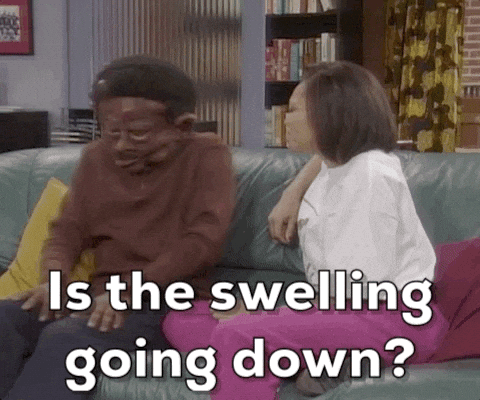 Giphy
GiphyAt the end of the day, an allergy is basically what transpires whenever your immune system “overreacts” to something that other people’s systems do not. And since sleep is what helps to keep your immune system nice and strong — well, I’m sure you get how less allergy-related symptoms and more sleep go hand in hand. Also, since sleep helps to decrease bodily inflammation (more on that in a bit) and inflammation can also intensify allergy symptoms, that’s just one more reason to get as much shut-eye as possible.
3. Less Sleep Means Potential Diabetes and Heart Disease
 Giphy
GiphyDid you know that in 2024, Black women were diagnosed with diabetes 24 percent more than any other adult demographic. Also, it continues to be a reality that heart disease is the leading cause of death for Black women. These two sobering statistics alone should be enough of an incentive to do whatever you can to keep the risk of diabetes and heart disease way down.
One way to do that is by getting more sleep. Aside from the fact that sleep strengthens your immune system to where it is easier for you to fight off illness and diseases, sleep can keep your blood sugar levels in a healthy space; plus, when it comes to your heart, it gives it, along with your arteries and blood vessels a break.
4. Less Sleep Means Less Time for Your Body to Push “Reset”
 Giphy
GiphyIf you really stopped to consider all that your body goes through during the day (you can read some about that here), you definitely would respect it enough to do your best to thank it by giving it no less than six hours of sleep, each and every night. Sleep is what helps to slow your brain and body down so they are able to “refuel” for the next day. After all, how can your body prevent you from getting sick if your immune system is too worn out to fight ailments off? Exactly.
5. More Sleep Helps You to Fight Off Infections
 Giphy
GiphySpeaking of, in order for your body to fight off infections, there are certain cells and antibodies within you that need to be healthy and strong — one way that they get and stay that way is by you getting a good amount of sleep. For instance, remember when I touched on cytokines earlier? Well, the same way that they help to prevent colds, they also help to prevent infections too. And since sleep lowers your cortisol (stress) levels, rest gives your body the time and space to build up an army that can fight off free radicals and other health-related challenges while you are awake.
6. More Sleep Lowers Bodily Inflammation
 Giphy
GiphyWhenever a health-related issue is mentioned on this platform, inflammation is something that is mentioned quite a bit. Probably the easiest way to explain inflammation is it’s how your body responds/reacts whenever something is happening to your body that shouldn’t be, whether it’s an illness, an injury, a germ or something that you may be allergic to.
If you happen to have chronic inflammation, some symptoms that are associated with that include fatigue, stiff joints, skin rashes, weight gain and moodiness.
The interesting thing about all of this is if you aren’t getting enough rest, you could be triggering inflammation in your body. That’s because studies reveal that a lack of sleep can elevate molecules that are associated with inflammation. So, if you don’t want inflammation to increase within your system, you should definitely catch more zzz’s.
7. More Sleep Regulates Hormones
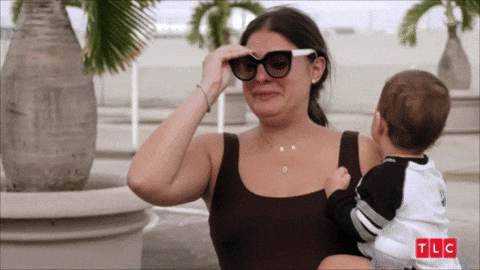 Giphy
GiphyWhen it comes to hormones like serotonin, estrogen and cortisol, believe it or not, they play a role in how your immune system acts and overreacts. That’s because, if your hormones are out of balance, that can cause your immune system to work harder than it actually should and that can make you more vulnerable to sickness. One way to keep your hormones leveled out? SLEEP.
That’s because sleep gives your body the opportunity to rest, repair and restore your hormone levels. On the other hand, when you are sleep deprived, that can put/keep your hormones on the ultimate roller coaster ride. #notgood
8. More Sleep Strengthens Vaccines
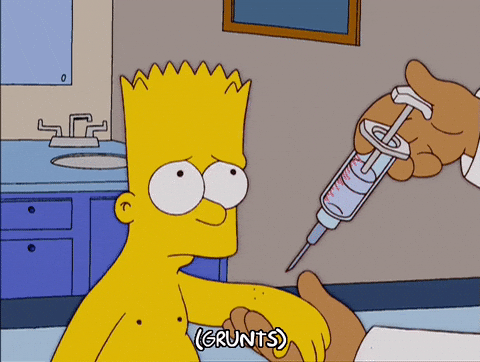 flu shot GIF - Find & Share on GIPHYGiphy
flu shot GIF - Find & Share on GIPHYGiphyIf you’re someone who is good for getting some sort of vaccine around this time of the year, make sure that you rest up before and after getting your shots. Not only does adequate rest before a vaccination help your immune system to be better receptive to your shots but sleep also helps your body to build up enough antibodies to make your vaccinations effective after getting them. Because if you’re gonna get pricked, shouldn’t it be worth it? My thoughts exactly.
Get some freakin’ sleep! Your immune system depends on it.
Let’s make things inbox official! Sign up for the xoNecole newsletter for love, wellness, career, and exclusive content delivered straight to your inbox.
Featured image by Shutterstock



